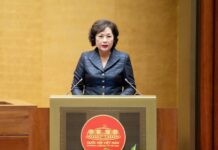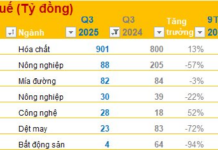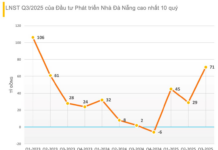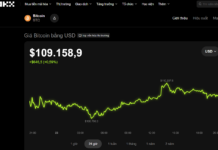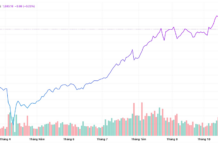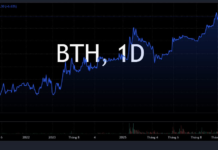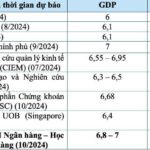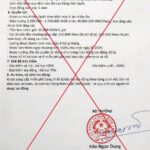Speaking at the “Training Course on Knowledge and Skills in International Economic Integration, Import-Export Procedures, E-Commerce, and Logistics,” Ms. Phuong Thi Lan Phuong, a senior expert from KTP FTA Consulting and Investment Joint Stock Company, shared that Vietnam is among the 15 countries with the largest trade flows globally.
From being a minor exporter, not featured in the top 15 exporting partners before 2013, Vietnam has risen to 11th place in the ranking of the world’s top 15 exporters by 2023. Vietnam is considered the surprise element in world trade.
Vietnam is one of the four countries, alongside India, Canada, and China, with the fastest annual export growth rate globally between 2019 and 2023. Vietnam ranks 15th in terms of import turnover worldwide.

According to Ms. Phuong, this achievement is attributable to the Vietnamese government’s strong determination and efforts in international economic integration. As of now, Vietnam has signed 16 free trade agreements (FTAs) and is the most open country globally, with nearly 60 partners.
By participating in these FTAs, Vietnam has elevated its status, upgraded, and changed many domestic legal regulations. The opportunities that FTAs bring include helping Vietnam increase its export turnover by reducing tariffs, lowering trade barriers, and facilitating market access to partners.
“We are ready to use external forces to promote internal reform. It is expected that FTAs will touch on more fields, although the initial stage may be challenging. In the long run, however, it will bring about innovation in all aspects for Vietnam. Moreover, FTAs continuously attract FDI into Vietnam, creating jobs for workers,” emphasized Ms. Phuong.
Importantly, thanks to the commitments within the FTA frameworks related to transparency, equal treatment, trade facilitation, intellectual property, and the environment, businesses initially incur higher costs but benefit in the long term as Vietnam’s standards gradually approach world standards.
Furthermore, the FTAs are helping Vietnam create a more favorable investment and business environment and simplify import-export regulations for enterprises. Some negotiating experts argue that we are using external pressure from these commitments to promote better domestic reform, moving closer to the world. As a result, Vietnamese goods will more easily meet the stringent standards of foreign markets.
Alongside the benefits that FTAs bring, the challenges for Vietnamese businesses and the economy are significant. There is increased competitive pressure due to market openness to many foreign products.
While we are strong exporters, 70% of export turnover belongs to FDI enterprises in Vietnam. According to OECD data from 2024, the DVA (Domestic Value Added) index, which indicates the value-added in Vietnam’s total exports, remains modest at 52%.
The utilization rate of C/O preferences under FTAs remains low, with many cases of exports not meeting rules of origin despite having preferential treatment. Vietnam’s participation in global value chains is still relatively low, mainly involved in processing and assembly, while higher-value-added stages are conducted in their home countries…
“The value-added achieved in our trade is not high, although exports are large. We rely too much on foreign input sources, and any fluctuations in the world will significantly impact businesses,” Ms. Phuong noted.
Therefore, to better utilize FTAs, Ms. Phuong suggested that enterprises need to deeply understand them. Since FTAs are complex, it is challenging for businesses to comprehend them, so relevant agencies should enhance training on FTAs and import-export issues. Enterprises and associations should also strengthen their roles and voices with the government regarding FTA implementation and propose solutions to difficulties and obstacles to better utilize these agreements.
“The Training Course on Knowledge and Skills in International Economic Integration, Import-Export Procedures, E-Commerce, and Logistics” is part of the technical support activities under the Special Fund of the Mekong-Lancang Project. The course is organized by the Management Unit of the Mekong-Lancang Technical Support Project, Ministry of Industry and Trade, from December 3rd to 6th.
The course focuses on: Updating trends in economic integration, trade and investment, FTAs, and non-tariff barriers to international trade; Import-export procedures, international purchasing, and payment; Logistics activities and comprehensive supply chain management in the current context; The development of e-commerce in the region and the world, new trends, and e-commerce commitments in Vietnam’s FTAs.
The aim is to enhance the capacity of officials from management agencies, associations, enterprises, institutes, and schools in the Mekong-Lancang region, providing them with valuable knowledge and skills to improve their work and contribute to the effectiveness of international economic integration and promote import-export activities between the countries in the region and the world.
The Yearly Inflation Forecast for 2024: A Modest Rise of 4%
Inflation forecasts for 2024 are estimated to reach 4 to 4.5%, surpassing 2023 levels due to the significant surge in global energy and food prices. This projection underscores the critical need for businesses and consumers alike to brace for a potentially challenging economic landscape in the coming year. With inflationary pressures showing no signs of abating, proactive strategies and adaptive approaches will be essential to navigate the financial climate ahead.
“Vietnam: The Rising E-Commerce Dragon of Southeast Asia”
The Vietnamese e-commerce market is projected to experience a compound annual growth rate (CAGR) of 28% from 2025 to 2033, underpinned by rising internet and mobile penetration, and the increasing adoption of digital payments. The government’s digitalization agenda is also a key driver of this impressive growth trajectory, setting the stage for a vibrant and dynamic online retail landscape in Vietnam.
Unveiling the Counterfeit: Over 50,000 Fake Red Bull Cans Uncovered
The Market Management Force has recently uncovered over 50,000 cans of a beverage named “Bò Húc”, which bears a striking resemblance to the well-known energy drink, Red Bull. This discovery raises concerns about potential trademark infringement, as the similarities between the two products are undeniable. With a name that translates to “Bull Charge”, it is clear that this beverage aims to capitalize on the reputation and success of Red Bull.






